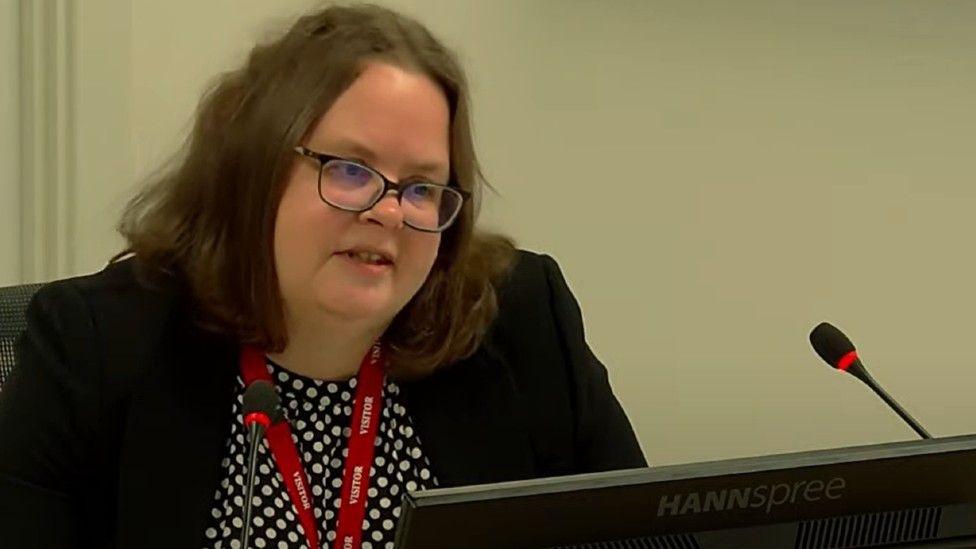Glasgow's £842m super hospital 'not built right' - NHS boss
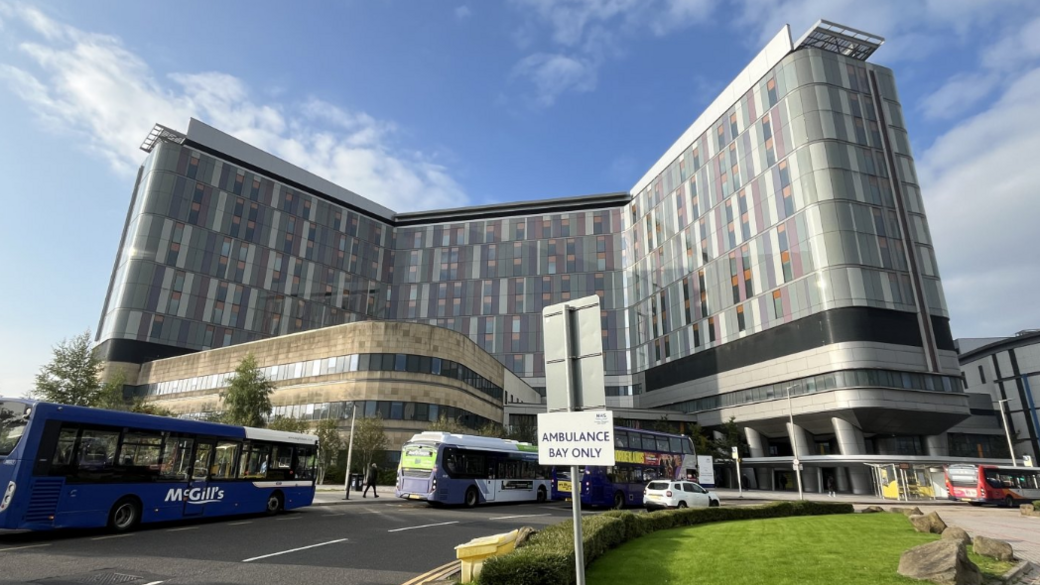
The Queen Elizabeth University Hospital opened in Glasgow in 2015
- Published
The Queen Elizabeth University Hospital (QEUH) in Glasgow was “not built right”, according to a senior NHS official.
Dr Jennifer Armstrong was second in command at NHS Greater Glasgow and Clyde when the £842m superhospital opened in 2015.
In evidence to the Scottish Hospitals Inquiry, the medical director said the NHS board “didn’t get what we expected” when they took control of the hospital buildings.
Dr Armstrong also claimed there was a view that two whistleblower doctors who raised infection control concerns were “more about proving themselves right rather than a focus on the children”.
The QEUH campus, which includes the Royal Hospital for Children, was hailed as a world leading facility when it opened.
But a series of infection outbreaks and concerns around the water and ventilation systems emerged after it opened and a number of patients died including 10-year-old Milly Main.
Cancer doctor concerns
A public inquiry is looking into the construction of the QEUH campus.
Dr Armstrong said she was aware of problems with the ventilation system in both the adult and children’s wards used for patients needing bone marrow transplants.
She said: "We were all taken aback by the fact that it had not been built right.
"I thought we were getting a fantastic hospital, because we had been working so long for this, but we didn’t get what we expected."
The inquiry heard that a decision was made in 2015 to move adults patients from the QEUH to the Beatson Hospital in Glasgow, so upgrade work could take place.
However, despite concerns of paediatric cancer doctors, the movement of child patients from the city's Yorkhill Hospital to the QEUH went ahead.
Dr Armstrong said there were many issues and risk factors to be taken into account when decisions like this were made, but patient safety was always put first.
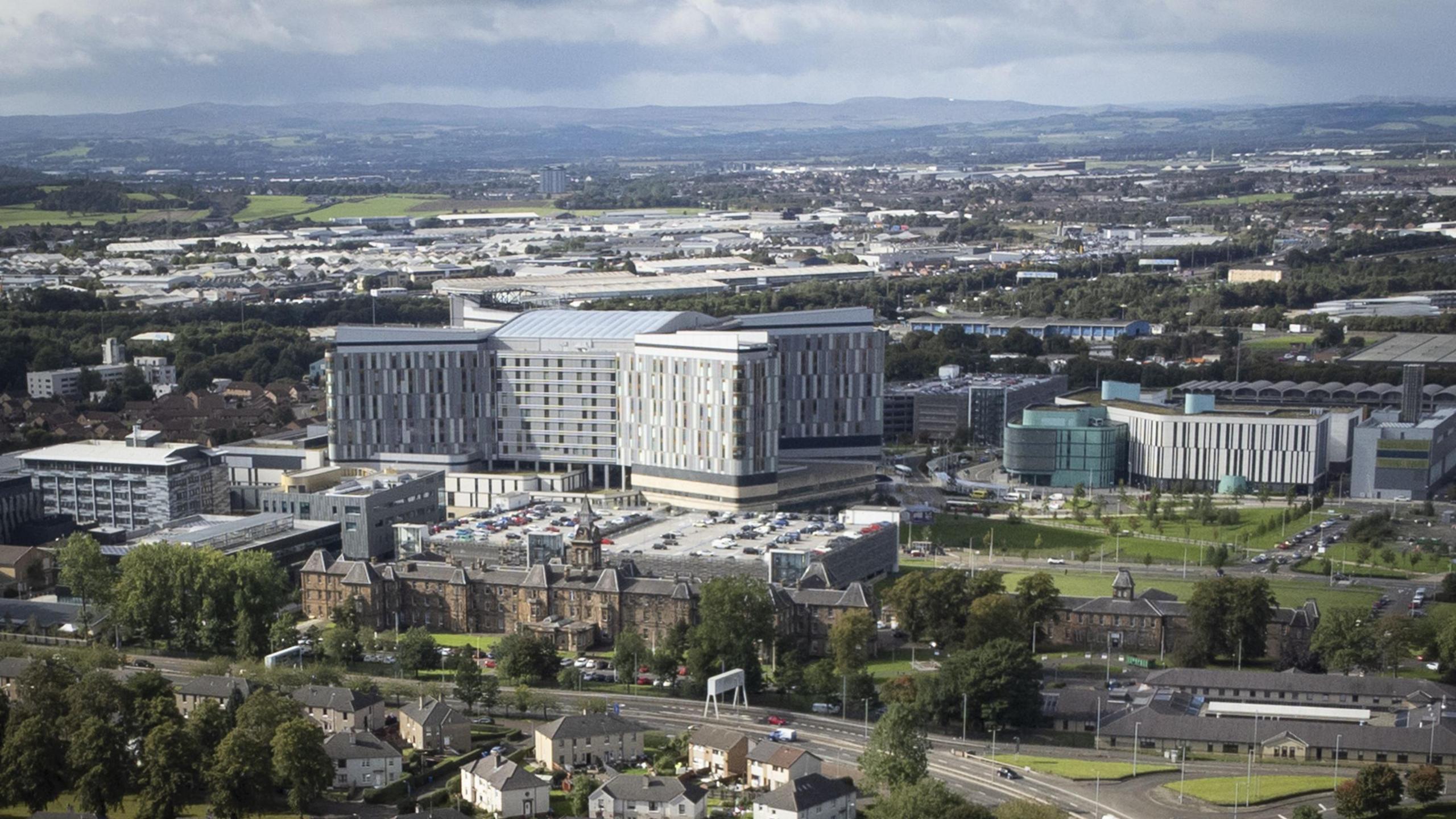
The QEUH campus includes the Royal Hospital for Children
An independent review into the hospital's design published its findings in June 2020.
The report found a "series of problems" with the design and build, but no clear evidence to link those failures to "avoidable deaths".
However, that investigation did not consider child cancer patients.
NHS Greater Glasgow and Clyde started legal action against three companies in 2020 over "technical issues" with the construction of the hospital complex.
But the action was paused the following year to allow an adjudication process to take place. The board wants to recoup £72.8m in losses and damages.
'Behavioural issues'
The public inquiry previously heard from current and former doctors who spent years raising infection control concerns.
Dr Christine Peters, a consultant microbiologist at the QEUH, previously told the inquiry she believed a "serious problem of a culture which does not value honesty" was the root cause of the failings.
In her written evidence, Dr Armstrong claimed there were "behavioural issues related to Dr Peters" and the running of an infection control group looking at the concerns raised.
She said: "There was a view, and this is set out in the external review, that it had become more about proving themselves right rather than a focus on the children.
"I do think the teams were all focussed on safety and doing the best for patients taking the whole risks into account. This was not acknowledged by individuals who felt they were the custodians of safety".
Yes or no question
Senior Counsel to the inquiry, Fred Mackintosh KC, pressed Dr Armstrong on her points about the doctors who raised concerns during her appearance at the inquiry.
Mr Mackintosh asked the senior NHS official for a yes or no answer as to whether she stood by her written evidence that Dr Teresa Inkster, one of the infection control experts who raised concerns, had a focus on proving herself right.
Dr Armstrong said she would not give a yes or no answer.
She said: “I think the focus had become about the environment and I think that led to a lack of focus on the children.
"I wouldn’t go as far as to say Dr Inkster wasn’t focused on the patients but I think the actions she took led to a lack of focus on the children.”
The inquiry before Lord Brodie continues.
- Published9 October 2024
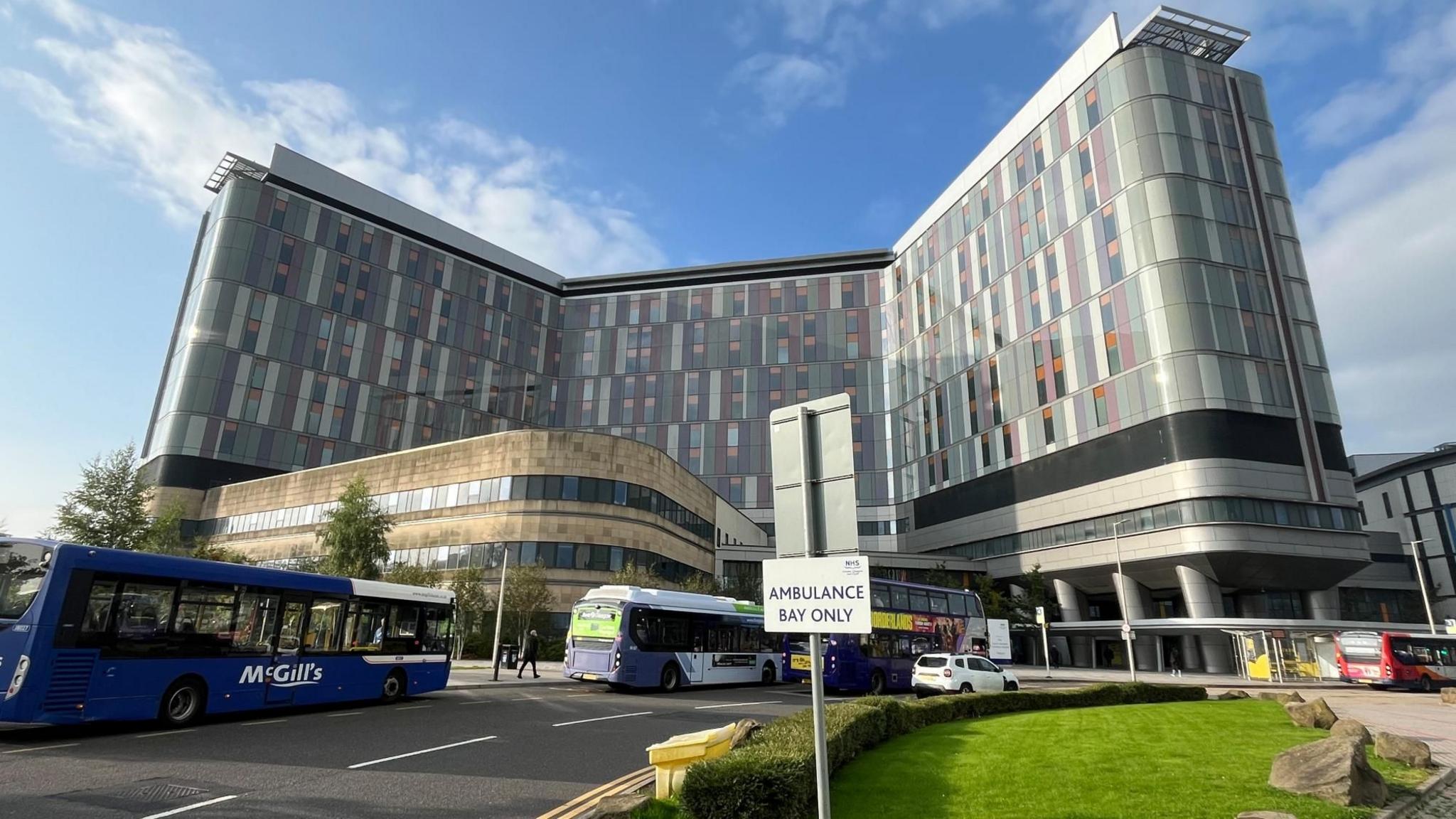
- Published11 September 2024
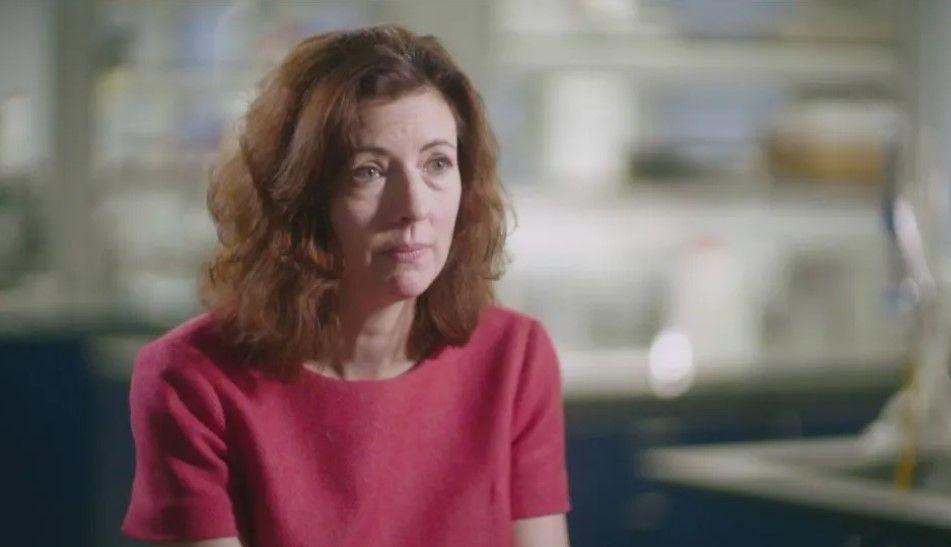
- Published1 October 2024
